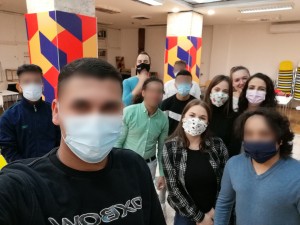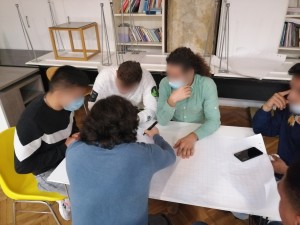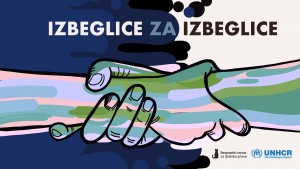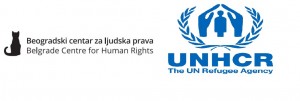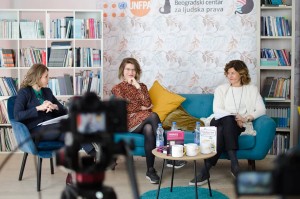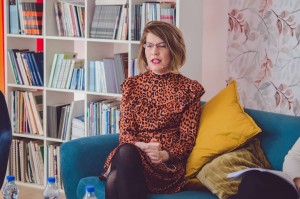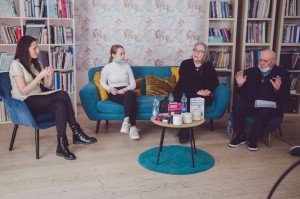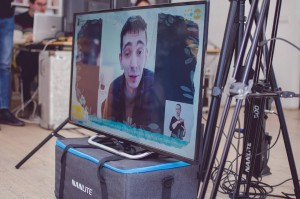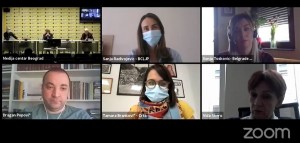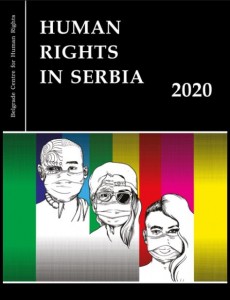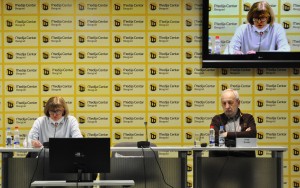BCHR presents its annual “Youth Rights in the Republic of Serbia in 2020” Report
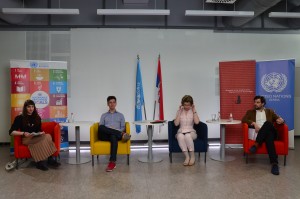 The Belgrade Centre for Human Rights today presented its new annual report “Youth Rights in the Republic of Serbia in 2020” at an online event.
The Belgrade Centre for Human Rights today presented its new annual report “Youth Rights in the Republic of Serbia in 2020” at an online event.
The Report shows that youth in Serbia faced numerous challenges in exercising their human rights in the year behind us, including their rights to work, education, freedom of movement, information and, in particular, their right to health and access to healthcare amidst the global COVID-19 pandemic. Paradoxically, no data are available on the number of youth tested, infected by or treated for coronavirus although they were stigmatised as the main carriers of the disease since it struck.
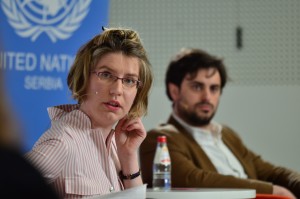 “Neither the Public Health Institute nor the Health Ministry were able to provide us with data on the number of youth tested, infected by or treated at home or in hospital for coronavirus last year. This additionally complicates the situation in view of the fact that the media have been targetting youth as the main carriers of the disease. Our analysis of media reports in 2020 shows that the greatest number of claims that youth were to blame for the spread of COVID-19 came from the Crisis HQ,” said Nevena Nikolić, BCHR’s Youth Programme Coordinator and one of the authors of the Report.
“Neither the Public Health Institute nor the Health Ministry were able to provide us with data on the number of youth tested, infected by or treated at home or in hospital for coronavirus last year. This additionally complicates the situation in view of the fact that the media have been targetting youth as the main carriers of the disease. Our analysis of media reports in 2020 shows that the greatest number of claims that youth were to blame for the spread of COVID-19 came from the Crisis HQ,” said Nevena Nikolić, BCHR’s Youth Programme Coordinator and one of the authors of the Report.
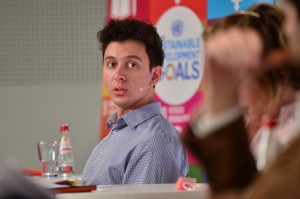 Restrictions of the youth’s freedom of movement in the context of the pandemic in 2020 included, notably, the curfew, quarantine and ban on entering or leaving the country. Long lockdown periods, coupled with prohibitions of movement in parks and other sites designated for recreation, impinged on the youth’s mental and physical health. Data show that as many as one-third of the fines for violating the curfew were levied against young people and that youth (18-30 years old) were on average imposed higher fines than the other generations.
Restrictions of the youth’s freedom of movement in the context of the pandemic in 2020 included, notably, the curfew, quarantine and ban on entering or leaving the country. Long lockdown periods, coupled with prohibitions of movement in parks and other sites designated for recreation, impinged on the youth’s mental and physical health. Data show that as many as one-third of the fines for violating the curfew were levied against young people and that youth (18-30 years old) were on average imposed higher fines than the other generations.
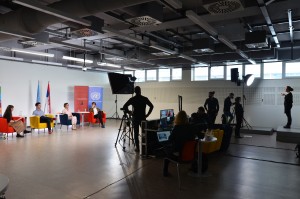 The year behind us also showed that youth attached key importance to environmental protection, aware that the resolution of these challenges would impact on the quality of their lives in the long term. Assessments are that at least 44% of youth are as interested in environmental topics as in other political issues and that they qualify environmental protection as the greatest value for society. Around 1,250,000 youth live in Serbian cities and muncipalities registering excessive pollution levels.
The year behind us also showed that youth attached key importance to environmental protection, aware that the resolution of these challenges would impact on the quality of their lives in the long term. Assessments are that at least 44% of youth are as interested in environmental topics as in other political issues and that they qualify environmental protection as the greatest value for society. Around 1,250,000 youth live in Serbian cities and muncipalities registering excessive pollution levels.
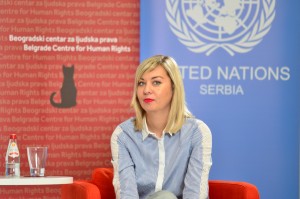 Youth employment levels dropped even more due to the pandemic – only half of youth between 20 and 29 ears old have jobs, compared with nearly two-thirds of their peers in EU Member States. Many youth working from home and so-called freelancers lack awareness of the legal provisions on remote work or their employers’ obligations.
Youth employment levels dropped even more due to the pandemic – only half of youth between 20 and 29 ears old have jobs, compared with nearly two-thirds of their peers in EU Member States. Many youth working from home and so-called freelancers lack awareness of the legal provisions on remote work or their employers’ obligations.
The closing down of schools and colleges impinged the most on poor youth and youth from rural areas, who did not have access to the Internet, computers or other devices for communication, information and remote learning.
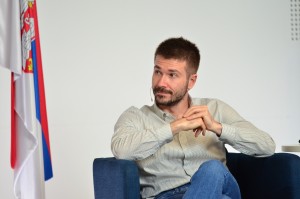 Roma youth faced even greater challenges during the pandemic than their non-Roma peers, especially given that most of the Roma population was unable to comply with epidemiological measures since numerous informal Roma settlements lack access to drinking water, a sewage system and electricity. Roma youth’s access to education was particularly undermined due to lack of technical prerequisites for remote learning (lack of electricity, the Internet, computers, tablets and smart phones).
Roma youth faced even greater challenges during the pandemic than their non-Roma peers, especially given that most of the Roma population was unable to comply with epidemiological measures since numerous informal Roma settlements lack access to drinking water, a sewage system and electricity. Roma youth’s access to education was particularly undermined due to lack of technical prerequisites for remote learning (lack of electricity, the Internet, computers, tablets and smart phones).
The pandemic particularly impinged on the lives of youth with disabilities, who are not independent and are living with their parents who are over 65, and youth with HIV or other chronic or systemic illnesses. Education of youth with disabilities was further fraught with challenges when the pandemic struck, due to the lack of clear procedures, needs assessments and additional support in inclusive education.
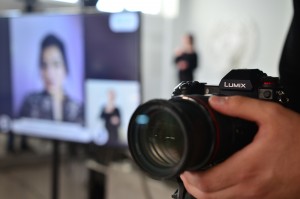 Participants in the event at which the “Youth Rights in the Republic of Serbia in 2020” Report was presented were addressed by Gordana Čomić, the Minister of Human and Minority Rights and Social Dialogue; Snežana Klašnja, the Youth Policy Adviser of the Minister of Youth and Sports; Milan Marković, the Head of the UN Human Rights Team in Serbia; Sonja Tošković, the BCHR Executive Director; and the Report authors Nevena Nikolić, Goran Sandić, Luka Mihajlović and Marina Simeunović.
Participants in the event at which the “Youth Rights in the Republic of Serbia in 2020” Report was presented were addressed by Gordana Čomić, the Minister of Human and Minority Rights and Social Dialogue; Snežana Klašnja, the Youth Policy Adviser of the Minister of Youth and Sports; Milan Marković, the Head of the UN Human Rights Team in Serbia; Sonja Tošković, the BCHR Executive Director; and the Report authors Nevena Nikolić, Goran Sandić, Luka Mihajlović and Marina Simeunović.
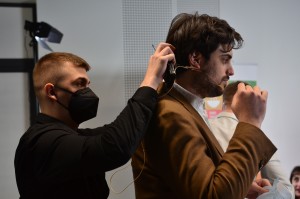 The research, translation and publication of the “Youth Rights in the Republic of Serbia in 2020” Report were supported by the UN Human Rights Team in Serbia. The Report includes an analysis of the youth’s realisation of their civil, political, economic, cultural and social rights. The Report focuses on 15 rights and freedoms, the human rights situation of youth with disabilities and the status of Roma youth.
The research, translation and publication of the “Youth Rights in the Republic of Serbia in 2020” Report were supported by the UN Human Rights Team in Serbia. The Report includes an analysis of the youth’s realisation of their civil, political, economic, cultural and social rights. The Report focuses on 15 rights and freedoms, the human rights situation of youth with disabilities and the status of Roma youth.
The Report is available HERE.
The video recording of the online presentation of the “Youth Rights in the Republic of Serbia in 2020” report is available here:







